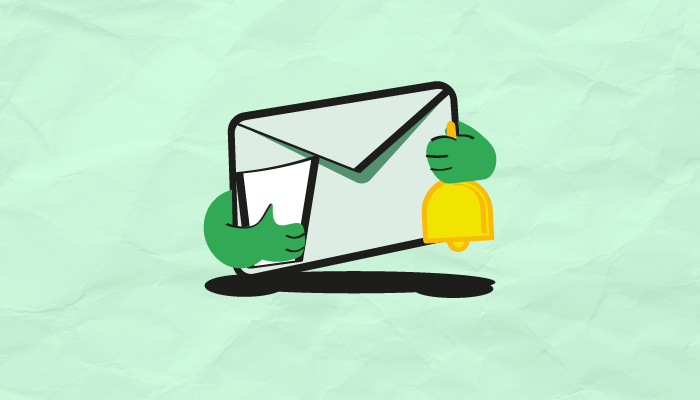- HOME
- Invoicing operations
- How to handle overdue invoices?
How to handle overdue invoices?

Your business managed to land a good number of clients this month, and the sales figures look promising. You’ve completed your work items, delivered them on time, sent the invoices, and sighed in relief with a sense of achievement. Everything looks great on paper. But when the payment deadline flies by without any response from your customers, you realize paper promises do not reflect reality. As a result, your cash flow takes a hit, stopping the business from taking on new projects, investing in new resources, and meeting its operational expenses.
That's why tackling overdue invoices and getting your clients to pay on time is paramount for your company's sustainability. Unpaid and overdue invoices have to be handled with care, ensuring that you do not jeopardize your client relationships when collecting what you are rightfully owed. Moreover, sending payment reminder emails and incessant follow-up calls or texts will not only aggravate your clients but also distract you from other critical business tasks.
So, how can you smartly deal with outstanding payments and keep your cash flow consistent without burning bridges? Here are some of the best, time-tested measures to handle overdue invoices effectively.
Reactive measures to handle overdue invoices
Start with payment reminders
When invoices become overdue, you can start dealing with them by sending payment reminders. This is especially effective when customers don't realize their invoice is due and forget to pay, which is often the case.
Send a polite email reminding them that their payment is due, highlighting the total amount to be paid, the payment terms, and your late payment policy (if you have one). Be sure to attach a copy of the original invoice for reference, and include the list of accepted payment options and payment links to expedite the process. If the payment is severely delayed, you can send multiple reminders at periodic intervals to convey the sense of urgency.
Follow up with a phone call
If you receive no response to your payment reminders, consider calling the client to identify and discuss any issues that are preventing them from paying and provide them with a solution. It's crucial to remain polite and professional at this stage. Approaching the client with accusations when they could have a fair reason for delayed payment will only serve to alienate them further. While contacting the customer, emphasize the value they are getting out of your work and communicate how you are hoping to collaborate with them in the future.
Consider extending credit
While chasing overdue invoices, it might be that your customer is just going through a difficult patch financially. Judge if this is habitual or circumstantial, and consider offering an extended deadline or allowing customers to pay in installments. A customer who can't pay a lump sum, say $10,000, may be able to pay $500 every month for 20 months. If your cash flow can't afford the hit this option would cause, partial payment is another option. For immediate cash flow but at the cost of a long-term loss, you could offer to accept $6,500 as payment for the $10,000 owed, and work out a payment plan to recover the rest of the amount.
Charge late fees
A late fee is an extra amount of money imposed on a customer for a delayed payment. You cannot charge your customer a late payment fee unless you’ve communicated your late fee policy to them upfront and they’ve signed an agreement regarding it. Additionally, when you are charging customers a late fee, their invoice also should capture the late fee details clearly under the payment terms section. Some businesses do charge a flat fee for late payments, but most charge a percentage of the total invoiced amount.
For instance, let's say you've sent an invoice of $2,000 at the end of the month with a payment term of Net 30 (payment due within 30 days). In the same invoice, you've mentioned that your late fee policy is to bill an unpaid invoice a 1% monthly fee.
So to calculate the daily percentage rate, multiply the 1% by 0.03 to find 1/30th of 1, which is 0.03. Now let's assume your customer pays 15 days after the deadline. Multiply the total amount due ($2,000) by the daily rate of 0.03 to get $60. Then take this $60 and multiply it by the number of overdue days, which, in this case, is 15 days. So you can collect an additional $900 as a late fee.
Take legal action
If you have exhausted all the above ways to collect the money owed, you can resort to a couple of other options. You can simply sever ties with the defaulting client and write off the invoice as bad debt, which is what most businesses do when the amount is nominal, or you can pursue a legal remedy when it is expensive. However, before proceeding, ensure you have all records related to the amount owed and seek legal counsel from a professional. It not only increases the likelihood of collecting the amount but also sets a precedent and shows your business takes non-payments seriously.
Proactive measures to handle overdue invoices
There’s no doubt that chasing overdue invoices is a tedious process, but that doesn't mean there are no ways to reduce the likelihood of late payments. Here are a few common proactive measures you can implement to prevent overdue invoices.
Know your customers
The sustainability of any business relies on the customers' ability to pay on time. Hence, save the trouble of dealing with overdue invoices by running a credit check on customers. If you find any history of bounced checks or late payments, consider starting with shorter invoice terms. Request trade references to get a sense of their past payment behavior. When it comes to your existing customers, keep a constant watch for signs like skipping payments or unsigned checks. If they default on their payments, you will be more prepared to take timely steps like sending polite payment reminders and establishing direct communication to receive late payments without jeopardizing your long-term relationship with them.
Agree on clear payment terms and policies
Prompt payment collection starts with setting payment terms and policies right from the beginning. Before diving into a project or agreeing to a business deal, ensure your customers understand your payment timelines, penalties for late payments, accrued interest on unpaid invoices, and associated policies, leaving no room for misinterpretation. The agreement between your company and your customers should include comprehensive information on:
- Payment terms
- Credit policy
- Late payment policy
- Early payment discounts
- Delayed payment
- Payment plans
- Split payment options
Communicate all these in writing and get your customers to sign it to minimize confusion. This written agreement also acts as proof to show customers when they don't follow through with the payment and will help if the case gets to the stage of legal action.
Collect advance payments
Request that customers pay a certain percentage of the cost upfront before starting the project or shipping the product. If you are a small business with financial constraints, collecting payments in advance not only gives you a head start but also saves the trouble of dealing with delayed payments. In most cases, businesses prefer to be paid fully in advance, while a few others request a 50% down payment from their customers to reduce the risk of non-payment. For instance, businesses ask for a deposit when the order is placed and then a percentage of the payment at different agreed-upon milestones of the project.
Send invoices promptly
Getting your payments on time requires sending invoices promptly on completion of the service or delivery of the product. While the order placed by the customer is still fresh in their mind, there is a higher chance for you to get paid on time. Furthermore, before taking any payment recovery action, double-check to ensure that the invoices are sent to the right recipient with the right details. Check for inconsistencies in payment due dates, purchase order numbers, postal or email addresses, and so on. A fully automated online invoicing tool can help you send accurate invoices promptly and speed up the payment process.
Be flexible with your payment options
The easier customers find it to pay you, the quicker you get the money. In this digital age, customers now have more than a couple of ways to make a successful transaction and most of them prefer a particular method to make their purchases. By offering multiple payment options, there is more likelihood that your business will support their preferred payment method, making it easier for them to quickly make the payment.
Hence, go beyond accepting payment by cash and check and consider allowing payments through all major credit and debit cards, direct bank deposits, mobile payments, and even allow them to set up automatic bill payments to facilitate recurring transactions.
Offer early payment discounts
An early payment discount is when businesses grant their customers a small discount if they pay ahead of the due date. For instance, if a client is offered a trade credit with terms of 2/10 net 30, it means if payment is made 10 days before the end of the usual credit period of 30 days, then the client is offered a discount of 2% on the total invoice amount. Such discounts might encourage customers to pay promptly and build loyalty in the long run.
Key takeaway
Overdue invoices can cripple a business's cash flow and wreck customer relationships. But handling them becomes easier if you have a streamlined mechanism in place. When first following up on overdue invoices, start with payment reminders and reach out to them personally. Based on the severity of the case, you can decide between extending credits, levying late fees, and taking legal action. However, a lot of this hassle is preventable if you set expectations in advance. After running a credit check, make your payment terms and other details like late fees and early payment discount policies clear during the onboarding process. The key is to be armed with accurate information and employ the right strategy at the right time.
Zoho Invoice is an online invoicing solution that can help you handle overdue invoices effectively with automated payment reminders, multiple payment methods, and more. With such an intuitive tool at your disposal, your business can weather the challenges of overdue invoices and maintain strong customer relationships.
